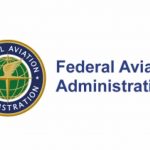FAA Launches Voluntary Reporting Program for Safety Office
IFA Comment: Maintaining trust in the aircraft certification system is vitally important. The saga of the 737MAX has reminded aviation of the importance of addressing concerns and problems rather than sweeping them under the carpet. Voluntary reporting system play a part in making sure corrective action is taken when things go wrong.
WASHINGTON 21 June 2021 – The U.S. Department of Transportation’s Federal Aviation Administration (FAA) has launched an additional way for its engineers, safety inspectors, systems safety specialists and other aviation safety employees to report safety-related issues and concerns. Information shared and submitted via this new system will be used to validate or verify an aviation safety concern, identify the root cause, and determine the appropriate corrective action.
The Voluntary Safety Reporting Program provides those who work in the FAA’s Aviation Safety organization the ability to report confidentially any safety concerns without fear of punitive action. The FAA’s Aviation Safety workforce is composed of about 7,400 professionals who provide oversight of airlines, manufacturers, maintenance providers, aviation medical practitioners and flight crews.
“We can never be satisfied with the status quo when it comes to safety, and the free exchange of vital information is a cornerstone of safety and continual improvement,” said FAA Administrator Steve Dickson. “We want our employees to know that when they speak up, they can be sure someone is listening.”
Since 1998, the risk of a fatal accident has decreased by 94 percent. Voluntary reporting programs have been integral to this reduction of risk by identifying and resolving issues before an accident occurs. The new Voluntary Safety Reporting System mirrors other successful safety information-sharing programs across the aviation industry.
The new Voluntary Safety Reporting Program is in addition to several reporting programs already available. FAA management worked closely with union leadership representing Aviation Safety employees to structure the new program to encourage the sharing safety information by all parties.
“The more we can continue to encourage people to report, the more we can influence the safety in the system,” said President of the National Air Traffic Controllers Association (NATCA), Paul Rinaldi, whose union represents engineers and other Aviation Safety employees.
In addition to supporting the FAA’s commitment to transparency, the continued development of voluntary reporting programs addresses congressional requirements for the FAA. An open, non-punitive and confidential reporting system allows the agency to address safety sensitive issues that may otherwise have gone unnoticed due to fear of repercussion.
“The Event Review Team will leverage subject matter experts to evaluate the safety issue and provide a recommendation on corrective action and will continue to monitor the issue throughout the process,” said Mike Perrone, President, Professional Aviation Safety Specialists (PASS), a union that represents many of the FAA’s technical workers.
The FAA order (PDF) establishing the Voluntary Safety Reporting Program is available on our website.




